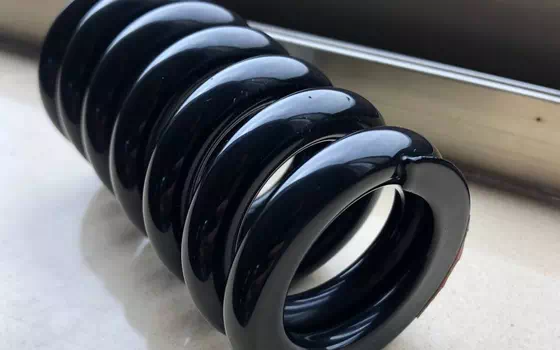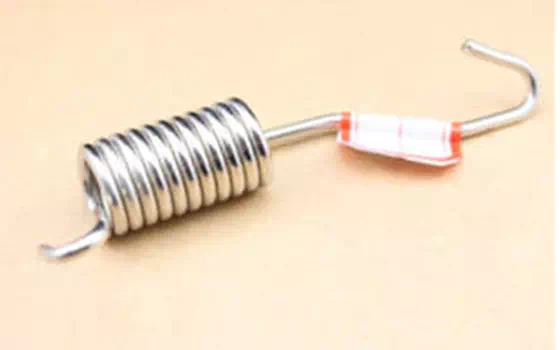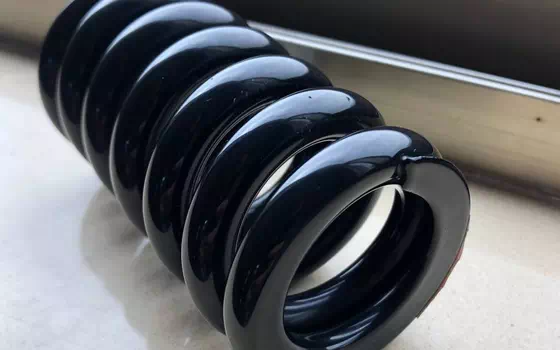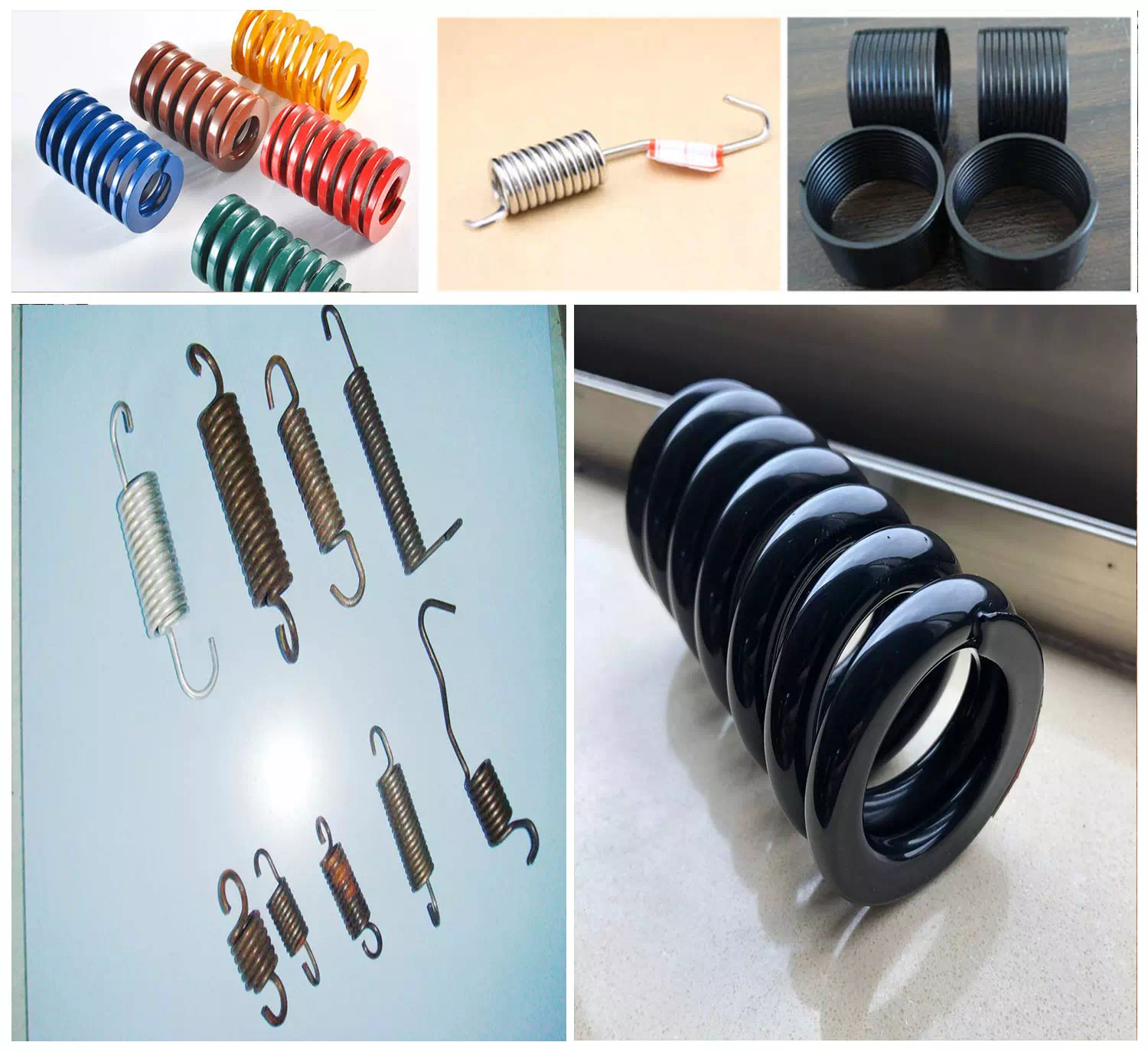Welcome to Zhishang Steel Co., Ltd.
TEL: (Gavin) +86-15665898999 | Email : info@zhishangsteel.com
Location:Home>>News>>Q&A » What metals can coil springs be made of?

The first step in making OTT-JAKOB coil springs is to choose the right metal to make the springs from. The key to the selection process is the tensile strength of the metal so that it meets the requirements of the application. Due to their abundance and cost, most springs are made of steel alloys. Copper and nickel alloys are also used for specific applications.
The type of metal selected for the production of metal springs must be able to hold and release the necessary mechanical energy for a long time without failure. The main properties of well-made helical springs are their ability to provide force between contact surfaces and their ability to absorb shock and stress.
High carbon steel is the most commonly used steel for coil springs. It is robust, durable and economical, and is available in 1045 and 1095 alloys. High carbon steel has a carbon content of 1% and manganese content of 0.9%, and has a very fine pearlescent layer structure, making the steel very hard, brittle, and poor ductility.
Chrome-vanadium steel
Chromium vanadium steel has excellent strength and flexibility. When used to produce coil springs, it has a moderate carbon content, giving it toughness and wear resistance. Adding vanadium to steel makes it easier to form without having to worry about it breaking. When processing chromium-vanadium steel, it is heat treated to increase its wear resistance and fatigue resistance. It is designed for use in high-stress environments with moderate temperature increases.

Chrome-silicon steel
Chrome-silicon steel is known for its high hardness and ability to withstand high stresses. Its hardness and heat resistance make it ideal for use at temperatures exceeding 275o F. Chromium silicon steel was developed as coil springs for anti-aircraft weapons with high impact loads.
302 stainless steel is the most commonly used stainless steel wire for manufacturing coil springs. It is especially useful if the coil spring will be exposed to a wet or corrosive environment. 302 stainless steel can resist high temperature effects up to 550o F or 228o C. It is the softest and most flexible of the various stainless steels and has high tensile strength.
Stainless Steel 316 is one of the cleanest stainless steels with all other moisture-proof properties that can resist the effects of high temperatures. Although it has positive qualities, it is the weakest of the three types of wire used to produce coil springs.
17-7 stainless steel resists the effects of moisture and corrosion, but is stronger than 302 and 316. The hardness of 17-7 stainless steel makes it possible to produce coil springs with greater force and stiffness. Stainless steel 17-7 can withstand temperatures up to 650o F or 343o C.

Silico-manganese steel
The silicon in silicon-manganese steel increases the hardness of the steel, controls its decomposition in tempering, and strengthens its ferrite. Manganese also increases the hardness of steel and reduces its decarbonization. A helical spring made of silicon-manganese steel is thermoformed at 900o C to produce a helical spring with a hardness of 225 BHN. Silicon manganese coil springs are used in torsion bars, railway vehicles, automobile plate springs and stabilizers.
Copper base spring alloy
The widespread use of copper-based spring alloys is due to their electrical properties and high corrosion resistance. The additional and attractive properties of copper-based alloys make them more expensive. They are often used for electrical components and sub-zero temperatures.
Beryllium copper has electrical conductivity, corrosion resistance and high mechanical strength, and has higher tensile strength and good fatigue strength compared to other copper alloys. It maintains its malleability even when placed at low temperatures. The non-magnetic properties of beryllium copper make it ideal for MRI machines in the medical field and directional drilling equipment for industrial use.

Nickel base spring alloy
The use of nickel-based alloys to produce coil springs is due to nickel's high corrosion resistance and ability to withstand extremely high temperatures and temperatures well below zero. Because nickel-based alloys are non-magnetic, they can be used in gyroscopes, chronographs and indicators. They are very resistant to the effects of electric currents and are very poor electrical conductors. Nickel-based spring alloys have Rockwell hardness ranges from C35 to C48.

Zhishang Steel has always been a pioneer in custom steel and special supplies, and has been recognized for its efforts in enhancing work efficiency and product quality. In addition to ISO9001:2015 certification, we also adhere to strict quality policies and proprietary procedures. If you have any questions, please contact us to provide the best type of product solution for your pre-painted, coil coating metal process, we will closely support after-sales service to ensure that your subsequent problems can be solved in a timely manner, if you have any questions, please send email to info@zhishangsteel.com, we look forward to serving you.

Zhishang Steel, specializing in domestic steel products trade, warehousing, processing and other services. The team has four service teams: Shandong Zhishang Steel Co., LTD., Shandong Zhiyiheng Trading Co., LTD., Tai 'an Zhishang Economic and Trade Co., LTD., Shandong Zhishang Steel Structure Co., LTD. Mainly engaged in steel coil, coated, stee···